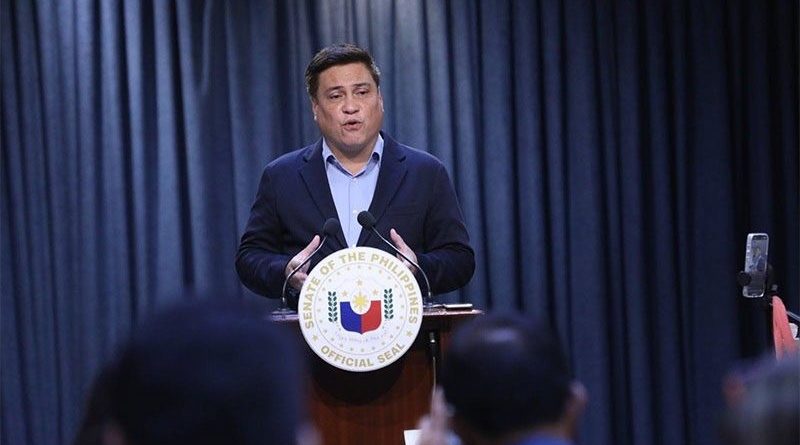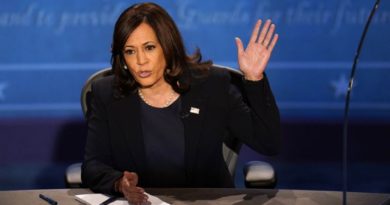HEADLINE-CHATER CHANGE | Marcos wants Cha-cha plebiscite in 2025 – Migz
Senate President Juan Miguel Zubiri on January 15, 2024.
.
.
House to adopt Senate’s RBH 6 in toto
.

MANILA, Philippines — President Marcos prefers to have a plebiscite on constitutional amendments synchronized with the 2025 midterm elections in order to save public funds, Senate President Juan Miguel Zubiri said yesterday.
This is far from the timeline of the House of Representatives, which is eyeing a plebiscite by July this year. The House is reportedly set to submit its Charter change proposal to the Commission on Elections (Comelec) before Congress goes on Holy Week break.
The Comelec said yesterday it is prepared to hold a Cha-cha plebiscite together with the 2025 midterm polls.

Zubiri said the President made known his wish at a meeting with him and 12 other senators at Malacañang yesterday after signing several laws, including the expanded centenarian law.
“The President, to be fair and honest, he mentioned that (Cha-cha). He prefers to have a plebiscite in the 2025 elections because it is very clear that if we do it before the elections, we will spend P12 billion to P14 billion. He said he prefers to have it at the same time as the 2025 elections, so in that case, we don’t have to hurry,” Zubiri told reporters.
The prospect of the two houses of Congress reaching common ground on Cha-cha brightened yesterday with Speaker Martin Romualdez’s voicing a commitment to adopt the Senate’s Resolution of Both Houses No. 6 in toto “to dispel doubts” that his chamber’s approach was politically motivated.
“This should assure the public that Congress is only touching on the economic provisions that need to adapt with the changing times. There is absolutely nothing in RBH 7 that hovers on any political provision of the Constitution,” Romualdez said.
Zubiri, meanwhile, said the President has urged Sen. Sonny Angara, chair of a subcommittee handling the proposed constitutional amendments, to study the “legal possibilities” of having the Commission on Elections (Comelec) include the rider question in the ballots for the 2025 polls.
Comelec Chairman George Garcia said the poll body is ready to synchronize the plebiscite with the midterm polls. “No additional cost, but we may have to request for higher allowances for teachers,” he said.
But he added a Supreme Court ruling in 1987 disallowing simultaneous holding of elections with plebiscite might create complications.
At the meeting, Zubiri revealed that the President reiterated his directive for the Senate to lead the discussion on Charter change. He said this should indicate that it’s RBH6 tabled in the Senate that should be discussed and not RBH7 of the House of Representatives.
“He (President) said, we’ll allow the Senate to take the lead and I’ve asked the House leaders to wait for your output and that they should just adopt,” Zubiri said.
For Sen. Sherwin Gatchalian, the message of the President was “very loud and clear.”
“Well, for us, the important thing is to cover everything and discuss it properly,” he said.
“The details to be discussed are not the ones that can be easily obtained quickly as we might forget something or not cover it. So we senators talked about the important detail,” Gatchalian added.
While he was not preempting Angara’s subcommittee proceedings, Zubiri noted that with best effort, the senators might be able to finish the Cha-cha discussion before adjournment on May 25.
He said they might start a Senate constituent assembly by April 29, when Congress resumes session after the Holy Week break from March 23 to April 28.
“We can’t finish this March yet with only three weeks left. We still have a lot of important measures to take up. But the hearing is definitely continuous,” he said.

‘Economy not politics’
At yesterday’s convening of the committee of the whole, Romualdez made it clear that “economy, not politics, is our only objective.”
Both RBH6 and RBH7 contain no political provisions, and their only difference is the manner of voting.
Senators wanted to insert “each House voting separately,” while the House version lifted quotes from the 1987 Constitution itself, which is silent on the issue of voting but stipulates that a three-fourths vote should be reached.
“Our mission here is very clear, which is to change economic provisions that restrict the entry of businesses from other countries, businesses that can create jobs and boost the economy,” Romualdez said.
He lamented that while he and other House members were pushing for the amendment of the Charter’s economic provisions, they are being accused of being opposed to “these essential reforms.”
“Categorically, we are denying this unfounded and baseless accusation. We have no other intention but to promote the interest of the Filipino people,” he said. “And we work night and day to make this happen.”
He said the House was adopting in toto RBH6, the resolution introduced in the Senate by Zubiri and Senators Loren Legarda and Angara.
RBH7 is authored by Senior Deputy Speaker Aurelio Gonzales Jr. and other House leaders.
He said the economic Charter reforms the House is pushing for aim “to create an environment ripe with opportunities where jobs are plentiful, education is world-class and the fruits of progress are shared by everyone.”
“To do this, we need to break barriers that hold us back. We must pave the way to cross over an era of prosperity, innovation and inclusivity,” he said.

‘Great leap forward’
The leader of the 300-plus-strong House called on the Filipino people “to support this great leap forward.”
He said constitutional amendment proposals are “a matter of utmost national concern that will impact not just the present citizens of our great nation, but also the generations to come.”
He stressed the need and urgency of effecting economic Charter changes.
“The times are changing. We need to adapt if we are to become more competitive globally, invite technological advancement and provide a more conducive economic platform where people have wider opportunities for growth. We should do it now, lest we risk lagging behind the rest of the world when it comes to economic development and productivity,” the Speaker said.
“The Filipino people need this change. We owe it to our constituents and the generations to come. We have to make this happen now more than ever,” he said.
He pointed out the proposed amendments seek to reform the public service sector, “open access of our children to the best educational institutions, whether Filipino or foreign-owned,” and liberalize the advertising industry.
“Reforming the provisions of the Constitution on foreign equity ownership in corporations, including those that operate public services, would further open up the Philippine market and attract significantly bigger foreign direct investments,” he said.
He said more investments could lead to cheaper and more reliable power and electricity, cheaper and faster internet service and better and more modern transport system.
“With better infrastructure, we would be able to encourage more investments, both foreign and domestic, that would create more and high quality jobs for our people,” he said.
He added that the restrictive economic provisions also affect education. “Currently, ownership of educational institutions is limited to Filipino citizens and corporations with 60-percent Filipino ownership. The control and administration of educational institutions are currently reserved to Filipinos exclusively,” Romualdez said.
He cited the testimonies of experts and economists who claimed the Philippines has the most stringent restrictions on foreign direct investments (FDI) to higher education, compared to neighboring countries such as Malaysia, Vietnam and Singapore which all allow 100-percent FDI on higher education, while Thailand allows FDI up to 50 percent and Indonesia up to 49 percent.
He said a number of studies also suggest that Filipinos are lagging behind in terms of education, with the country spending less than the recommended six percent of the national budget on education.
“The inability to spend on education hampers efforts to improve infrastructure, upgrade educational resources and enhance teacher training, which ultimately affects the quality of education provided,” he said.
“We believe in the competence of our Filipino educators. However, we must admit that Filipinos do not have a monopoly of wisdom and learning. Learning is a process of acquiring and accumulating knowledge, understanding, skills and even behavior. It is best attained by collaboration and exposure to new and different experiences, approaches and perspectives,” he said.

Unnecessary restriction
As for the advertising industry, the Speaker said this is another area that is unnecessarily restricted by the current Constitution, which limits foreign equity participation to 30 percent.
“This is a peculiar situation, considering that the very concept of advertising is to reach as many and as far as possible. Limiting foreign investments in an industry that is boundless is a point to ponder on for the committee of the whole,” he said.
The House leader noted that foreign advertising firms “actually are already present in the local scene today.”
“We have to formalize their participation to enable greater gains in such productive partnerships,” he said.
He emphasized that the proposed economic amendments would give policymakers “more flexibility in our economic policies and be able to compete with other countries for foreign investments by removing the constitutional restrictions and allowing Congress through legislation to set the terms and conditions for foreign investments in vital sectors of our economy.”
He impressed upon his colleagues the importance of the committee of the whole deliberations, as these would “allow us to act with dispatch on this crucial matter and enable every member to freely contribute in the discussion of this most important proposal.” — Mayen Jaymalin









